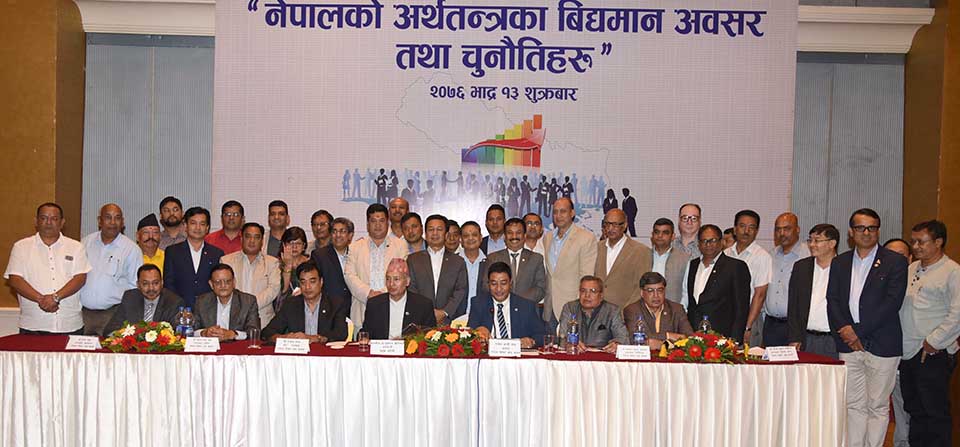
OR
FinMin defends removing loan from FDI
Published On: August 31, 2019 08:58 AM NPT By: Republica | @RepublicaNepal

KATHMANDU, Aug 31: Minister for Finance Yuba Raj Khatiwada has defended the provision in the new Foreign Investment and Technology Transfer Act (FITTA) to remove loan from the components of Foreign Direct Investment (FDI).
In the earlier FITTA of 1992, loan was categorized as FDI. However, according FITTA of 2019, only equity is considered as FDI.
“The risk of loan is not taken by the bank. The business house needs to take the risk of the money taken,” said Khatiwada, at a discussion program organized by Nepal Chamber of Commerce (NCC) on the theme of ‘existing challenges and opportunities of Nepali economy’.
The finance minister also said that the new act was brought to control the heavy flow of loan as FDI. “The government is flexible about accepting loans from outside the country. However, this is only necessary when there is less liquidity. When there is more liquidity in the country, the government does not allow taking loans from elsewhere,” said Khatiwada.
On the occasion, Khatiwada also said that entrepreneurs would be imprisoned if found guilty of revenue leakage. “If it is proved that someone has evaded the tax, they would be imprisoned for at least one day,” said Khatiwada.
“Paying fines may be not a big deal for business people, however, getting imprisoned will hurt their social status,” said Khatiwada. Stating that even presidents and prime minister go to jail for big crimes in other countries, the finance minister said that tax fraud should be punishable by imprisonment in Nepal.
Khatiwada also said the country will see changes in the use of energy. “We will promote the business of electric home appliances, and other electric products. For this, traders should gradually stop importing diesel run products,” the minister said.
Khatiwada also said that making the PAN card mandatory for all wage earners was a move to make all professions and sectors responsible. “We need PAN card when we gradually shift to formal channels in economy,” he said.
Minister Khatiwada also stressed on the need of systematic and transparent transaction process in the retail sector.
On the occasion, Rajesh Kazi Shrestha, president of NCC, said that though the government had good intentions behind introducing many legal provisions such as Value Added Tax (VAT), Vehicle and Consignment Tracking System (VCTS), Social Security Fund (SSF) and other legal provision, small business entities have been facing a lot of difficulties in implementation of these initiatives.
“We have listened to the challenges of each sector. We will continue to discuss with these sectors and find solutions to their difficulties,” the minister said.
You May Like This

Foreign investors to be provided with ‘conditional’ residential visas
KATHMANDU, Jan 13: The government has enforced the Regulations of the Foreign Investment and Technology Transfer Act (FITTA), allowing the authorities... Read More...

Amazon confirms two employees in Italy have contracted coronavirus
WASHINGTON, March 2: Amazon.com Inc said late on Sunday that two employees in Milan, Italy, have contracted the coronavirus and... Read More...

IBN to showcase some 50 projects for FDI
KATHMANDU, March 15: Investment Board Nepal (IBN) has prepared a list of 50 projects for showcasing to foreign investors at the... Read More...









Just In
- Heavy rainfall likely in Bagmati and Sudurpaschim provinces
- Bangladesh protest leaders taken from hospital by police
- Challenges Confronting the New Coalition
- NRB introduces cautiously flexible measures to address ongoing slowdown in various economic sectors
- Forced Covid-19 cremations: is it too late for redemption?
- NRB to provide collateral-free loans to foreign employment seekers
- NEB to publish Grade 12 results next week
- Body handover begins; Relatives remain dissatisfied with insurance, compensation amount








Leave A Comment